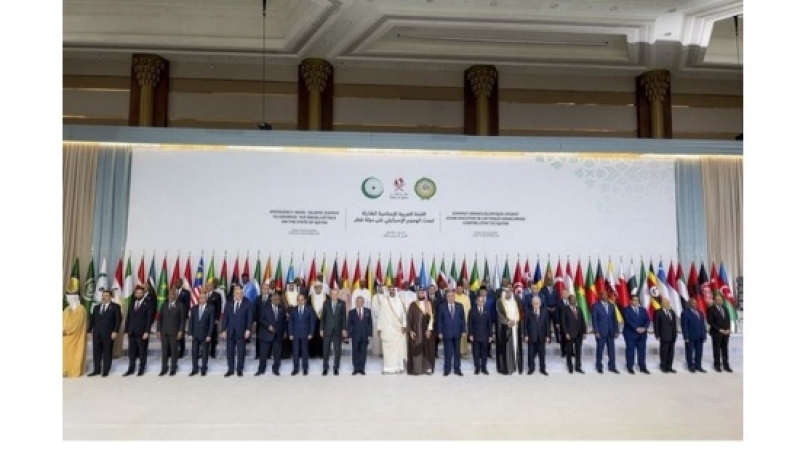



When organizations fail to fulfill the objectives for which they were created, they become irrelevant and wither away. This is what is happening to the Organization of Islamic Cooperation and the Arab League. It is time to bury both.
Amr Musa, the new secretary general of the Arab League, has announced reforms that he claims will transform the moribund 55-year-old organisation into an effective agency that is less bureaucratic and more responsive to the needs of the ‘Arab nation’.
There is little in common between the Egyptian and Saudi regimes even if both are puppets of the West and the Saudis have tried to buttress the crumbling Egyptian economy. Their differences are coming to the fore amid rising tensions between the two oppressive regimes.
Arab League summits are pretty pathetic affairs. Arabian rulers talk big but there is little action. Nothing can be expected from puppets but last week’s summit in Mauritania hit new lows!
1The Arab League is not a serious organization; it has never been. Yet at its meeting last month declaring Hizbullah a ‘terrorist’ organization must rank as the lowest point it has fallen to in its miserable existence.
No single Arabian army or a combination of them has ever won a single battle. Their sole achievement has been to conquer their own hapless people. A new plan proposes an “Arab” army; it will be used to suppress internal dissent, more efficiently!
For years the Arab League has been a symbol of the incompetence and impotence of the Arab states. Every time there has been a major issue in the Muslim world, the League has met and done absolutely nothing of note. Yet now, for some reason, the summit that is taking place in Riyadh at the end of March (as this issue of Crescent goes to press) is being hailed around the world as crucial for the future of the region
Although they are usually secretive in their dealings, the Saudis are showing far too much political activism these days to go unnoticed. The Arab League is holding its summit in Riyadh on March 28-29 (after Crescent press time), and the top item on the agenda is the Arab regimes’ desire to recognise Israel.
The impotence of Arab regimes was again on display on February 17, when foreign ministers from the 22-member Arab League gathered in Cairo for an "extraordinary" meeting, not to formulate a common response to the invasion of Iraq, but merely to agree on a date for an "emergency" summit.
The first regular Arab league summit in ten years concluded its business in Amman (capital of Jordan) on March 28, failing to solve the problems it had set out to tackle.
Arab interior and justice ministers met in Jeddah, in the Hijaz, on August 1 to establish structures for the implementation of the Arab treaty against ‘terrorism’ which came into force on May 7 following its ratification by seven Arab League member states.
The war being waged against Islamic activism in the Arab world and Africa has taken an ominous new turn last month as the Arab League’s ‘anti-terrorism’ pact goes into force and plans are put into place for the adoption of a similar treaty by the member-states of the Organisation of African Unity (OAU).
Will the Arab regimes muster enough courage to defy the western-led embargo against Libya imposed through the UN security council since April 1992?

